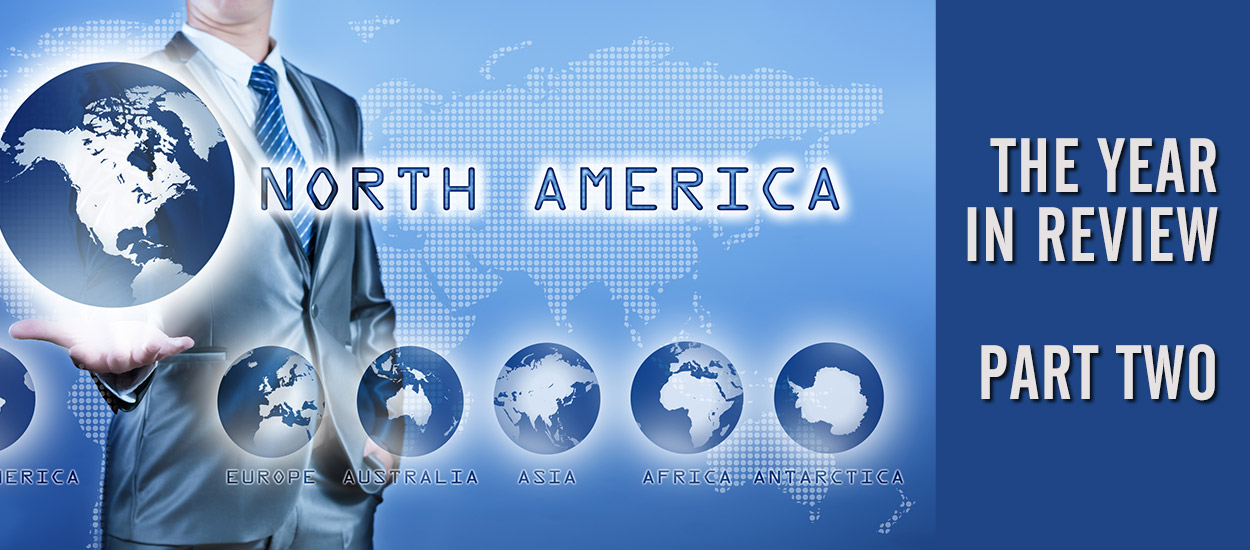Top 5 North American gambling stories in 2022
The list continues with the top 5 issues and events for gambling in 2022. The number six through ten stories covered mostly happenings in the U.S. But in 2022, Canada made a huge impact on the gambling industry. Plus, LIV Golf started and almost immediately shook up golf and golf betting. Check out the top stories in North America for 2022 below.
5. The failed attempt at sports betting in Florida
In 2021, a law to license and regulate sports betting in Florida was initiated after Ron DeSantis signed a compact with the Seminole Tribe that would give them a 30 year agreement with exclusive rights to offer gambling, including sports and iGaming conducted through servers located on Tribal lands. It also gave them the right to include craps and roulette at tribal operations and the ability to partner with non-Seminole casinos to offer sports betting off the reserve. The Seminoles teamed up with Hard Rock Casino and began offering sports betting on their app in November 2021. The compact would guarantee the state $2.5 billion in the first 5 years of operation.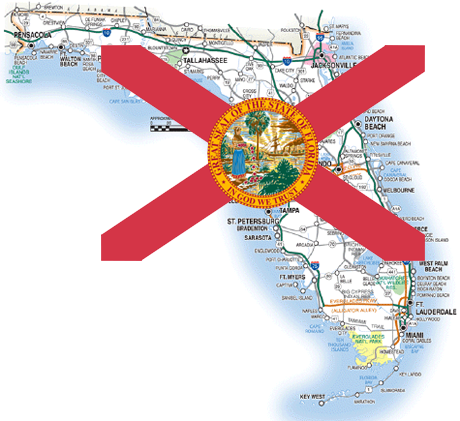 Two land-based operators, Magic Casino and Bonita Springs Poker Room challenged the compact saying it violated the Indian Gaming Regulatory Act (IGRA) rule that required all gambling to take place exclusively on Tribal lands and a district judge sided with the plaintiffs saying that the compact violated IGRA rules. An appellate court upheld that ruling and said the tribe must cease all sports betting as of December although they did say that it could still be challenged. This ruling was appealed almost immediately by the State and the Seminoles, and the federal government urged the court to change its mind and allow the compact to go ahead.
Two land-based operators, Magic Casino and Bonita Springs Poker Room challenged the compact saying it violated the Indian Gaming Regulatory Act (IGRA) rule that required all gambling to take place exclusively on Tribal lands and a district judge sided with the plaintiffs saying that the compact violated IGRA rules. An appellate court upheld that ruling and said the tribe must cease all sports betting as of December although they did say that it could still be challenged. This ruling was appealed almost immediately by the State and the Seminoles, and the federal government urged the court to change its mind and allow the compact to go ahead.
The Seminole Tribe which was deemed to have no standing in the decision, challenged that notion saying that it has the right to be heard which they feel will bolster their chances of having the ruling overturned if they could claim sovereign immunity. Thus far, no date has been set to hear the appeal although it was almost certain to be ignored in 2022 as it was an election year. It should be noted that Michigan has allowed Tribes to offer its interactive products off the reserves by teaming up with commercial operators, although in Michigan both forms of gambling are legal, so Florida is hoping to use that situation as an example of how Tribal gaming off of reserve lands is not contrary to the IGRA.
In the meantime, while sports betting was technically declared legal via a compact, there was no state law in place that made sports betting officially legal. That can only occur if the state voters approve it in a referendum, so sports betting companies sought to do just that. FanDuel and DraftKings spent about $37 million using a Public Access Commission called Florida Education Champions to gather enough signatures to get commercial sports betting on the ballot. The PAC started to gather votes in January and set a February 2nd deadline to get the necessary signatures to have sports betting put on the November midterm ballot, but they only received about half the necessary signatures and announced the initiative dead. It is uncertain whether the companies hoped to team up with the Seminoles and have the tribe use their sportsbook apps or whether they believed the compact was dead in the water and felt this was a way to get sports betting legalized that wasn’t under Indian control.
While abandoning plans to put sports betting on the ballot in 2022, Florida Education Champions has continued to gather signatures to have the initiative put on the ballot in 2024 and by all accounts has a million signatures. If it does get put on the ballot, and gets approval, it will almost certainly lead to a larger battle over the legitimacy of compacts and the IGRA, if the Seminoles lose their right to exclusivity over gambling in the state. For that reason there is an expectation that the state may ask for the compact ruling to be considered more urgently by the DC court.
4. LIV Golf and its effects on sports and sports betting
One of the more intriguing stories of 2022 was the launch of LIV golf. Frustrated with the way the PGA Tour was conducting their operations, Greg Norman teamed up with the Saudi government to create a new golf league that he said would change the way golf tournaments are run. LIV had eight tournaments in 2022 in England, Thailand, Saudi Arabia and five U.S. golf courses in 2022. That number will increase in subsequent years. The tournaments had no cuts, were only 54 holes (3 days), used a shotgun start and had a team competition included, with prizes. The series was not recognized for official world golf rankings, so the players hoped they could play on both LIV and other tours to gain points. PGA Tour commissioner Jay Monahan, officially nixed that suggestion, telling players that if they join LIV, they will be banned from PGA Tour events including the Ryder Cup and Presidents Cup. LIV players sued the PGA Tour over violation of their rights, although one-by-one, the majority of players withdrew their name from the suit, deciding it would do them more harm than good.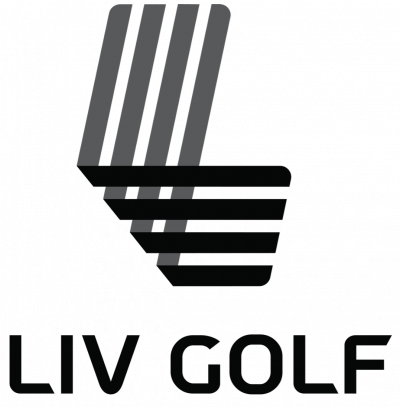 In an effort to attract the best players LIV offered those who agreed to join their league hefty sign-up bonuses. The first player to join LIV was Phil Mickelson, who was paid $200 million to be both a player and a spokesman for the series. Mickelson caused quite a stir when he said in an interview with Golf.com reporter Alan Shipnuck that the Saudis were "scary motherf*ckers" amid the murder of journalist Jamal Khashoggi, but he also indicated that he was moving to LIV because the PGA Tour had to change their ways (i.e. give the players more money and force them to play less). Mickelson has since tried to walk back those comments after he was berated by the Saudi government, and he was arguably the worst player in the LIV events held in 2022. Other big name players that bolted over for huge cash incentives included Dustin Johnson, Brooks Koepka and Bryson Dechambeau (all paid $100 million), as well as Patrick Reed, Sergio Garcia, Mark Leishman, Jason Kokrak, Talor Gooch, Kevin Na, Joaquin Niemann, Bubba Watson, Abraham Ancer and some others for undisclosed sign-up bonuses. Most shockingly and upsetting for the PGA Tour was the defection of 2022 Masters winner Cameron Smith, who bolted for $100 million. Brandon Grace won the first tournament; Dustin Johnson won the most money and was named the series champion; and Cameron Smith won the last tournament and was dominant in each match he played. Four Aces which consisted of Johnson, Gooch, Reed and Pat Perez won the team competition.
In an effort to attract the best players LIV offered those who agreed to join their league hefty sign-up bonuses. The first player to join LIV was Phil Mickelson, who was paid $200 million to be both a player and a spokesman for the series. Mickelson caused quite a stir when he said in an interview with Golf.com reporter Alan Shipnuck that the Saudis were "scary motherf*ckers" amid the murder of journalist Jamal Khashoggi, but he also indicated that he was moving to LIV because the PGA Tour had to change their ways (i.e. give the players more money and force them to play less). Mickelson has since tried to walk back those comments after he was berated by the Saudi government, and he was arguably the worst player in the LIV events held in 2022. Other big name players that bolted over for huge cash incentives included Dustin Johnson, Brooks Koepka and Bryson Dechambeau (all paid $100 million), as well as Patrick Reed, Sergio Garcia, Mark Leishman, Jason Kokrak, Talor Gooch, Kevin Na, Joaquin Niemann, Bubba Watson, Abraham Ancer and some others for undisclosed sign-up bonuses. Most shockingly and upsetting for the PGA Tour was the defection of 2022 Masters winner Cameron Smith, who bolted for $100 million. Brandon Grace won the first tournament; Dustin Johnson won the most money and was named the series champion; and Cameron Smith won the last tournament and was dominant in each match he played. Four Aces which consisted of Johnson, Gooch, Reed and Pat Perez won the team competition.
To a tee, almost every player that joined LIV said they did so for the money and to play fewer tournaments, although players like Reed and Niemann were widely condemned for saying that and then competing in tournaments on the European and African tours to get OWGR points. There were suggestions that the majors may ban LIV players also, but the Masters said all past champions and those who got enough points can play in 2023 although some 9-11 groups and some golfers said they would protest that decision.
LIV caused a huge split among those who joined the league and PGA Tour players who consider LIV golfers traitors and effectively the enemy. Rory McIlroy, Justin Thomas and Scottie Scheffler have been the most vocal about LIV golfers and Tiger Woods called a meeting with the PGATour players practically begging them not to give into the Saudis. There were reports that Woods was offered almost a billion dollars to join LIV but he told them to f*ck off. Many in the media have condemned Norman and the players for helping promote a form of "sportswashing", i.e., trying to legitimize a rogue regime by using sports to hide their civil rights abuses. Some media folk such as David Feherty, also went to LIV for the money.
Sportsbooks and broadcasters were also caught in the middle. TV stations not wanting to be seen as disloyal to America refused to broadcast the events, leaving it to be shown on YouTube only, and sportsbooks were split on whether to offer odds for it. FanDuel and WynnBet refused to post odds on the events while BetMGM, Bet365 and DraftKings did post odds. Caesars posted in some states where they felt they would not be chastised, but not in others where it believed they would get pushback.
In the end, the events were poorly viewed, the series got very little notice and the gambling action on the tournaments were not that good. Nevertheless, the whole scandal the tournament brought out due to its ties to the Saudi government, along with accolades from Donald Trump, certainly divided the gambling world and to some degree the nation as well.
3. Anger over excessive advertising and promotions
One of the issues with new markets is the need by companies to differentiate themselves from the competition and this can only be done by advertising and promotions. Residents of New Jersey said they were overwhelmed with advertising when iGaming went live there years ago, but now that companies are known the amount of advertising has died down. The same is true in Pennsylvania, although it was noted that the number of companies licensed in the Keystone State is not really that large. But in locations with many licenses including New York, Ontario and even Colorado, residents say they are overwhelmed by the amount of advertising and promotions being advertised in almost every broadcast. Conan O’Brien joked on a podcast that he must be dead because he hadn’t seen a sports betting ad on New York television in 7 minutes. Ads in New York and Ontario are constant. Aside from TV and radio, advertising for sports betting on billboards and even on digital boards in sports broadcasts is overwhelming.  Fans have even noted that NFL games seem to have gambling advertising superimposed on the field and the constant listing of updated odds in some sporting events, including golf and tennis is ridiculous. PGA Tour events in particular, show updated odds at the end of almost every commercial on weekend broadcasts.
Fans have even noted that NFL games seem to have gambling advertising superimposed on the field and the constant listing of updated odds in some sporting events, including golf and tennis is ridiculous. PGA Tour events in particular, show updated odds at the end of almost every commercial on weekend broadcasts.
One of the big concerns in the U.S. related to advertising are deceptive advertising practices. States have noted that some sportsbooks and casinos have given the indication that people can change their lives and pay off debts by gambling. This has been one of the biggest condemnations of state lotteries which talk about "freedom" and "a new life" if one can simply win the Powerball or Mega Millions lottery, despite there being a better chance of being struck by lightning three times than that happening. Consequently, many states have put in rules related to responsible gambling, that force gambling sites to put in a message that gambling is for recreational purposes only and will not help you get rich. There is also a requirement to indicate that one is fit and eligible to play. Yet, despite the rules only Indiana has ever issued a fine for deceptive advertising.
Along with the excessive advertising, players are being inundated with promotions. A New York Times article featured a chiropractor who lost his life savings after constantly being offered free bets, and in other states bettors have said whenever they decide to take a break they are met with an email saying, "we miss you" and promotional offers they can't pass up. These offers almost always include free money or free bets in exchange for a deposit, but the free bets are credits which must be gambled before they can be withdrawn and the free money always has rollover requirements. In the end, the gambler almost always loses the “free” money along with their post-up funds. Ontario has tried to counteract that by instituting a rule saying promotions can only be offered on the company’s website or in direct emails to players that are already registered with the company and opted in to receiving promotions. No promotions or bonuses can be included in public advertisements. Several companies received fines for violating those rules. In the U.S., however, no state has a similar rule such rule, so every ad includes a promotional enticement.
In response to the overwhelming amount of advertising and promotions, some states have indicated plans to combat it. A whistle-to-whistle ban has been discussed in some states, meaning that no gambling site would be able to advertise during live broadcasts. This type of ban was put in place in the UK, Australia, Spain and Italy. Other states, including New York, have said they are looking at advertising rules also, but until a set rule and penalty is created, there is little reason to expect the advertising to decrease. But, there will be a time that the costs outweigh the benefits of advertising, as is the case in the fully developed sports betting market in New Jersey now.
2. The launch of an open online market in Ontario
One of the biggest North American launches for online gambling ever occurred in 2022, in the Canadian province of Ontario. Ontario announced that it was going to provide an open market to allow any operator to offer online sports betting, casino gambling and poker in exchange for a $100,000 license fee and a 20% tax on gross gambling revenue. 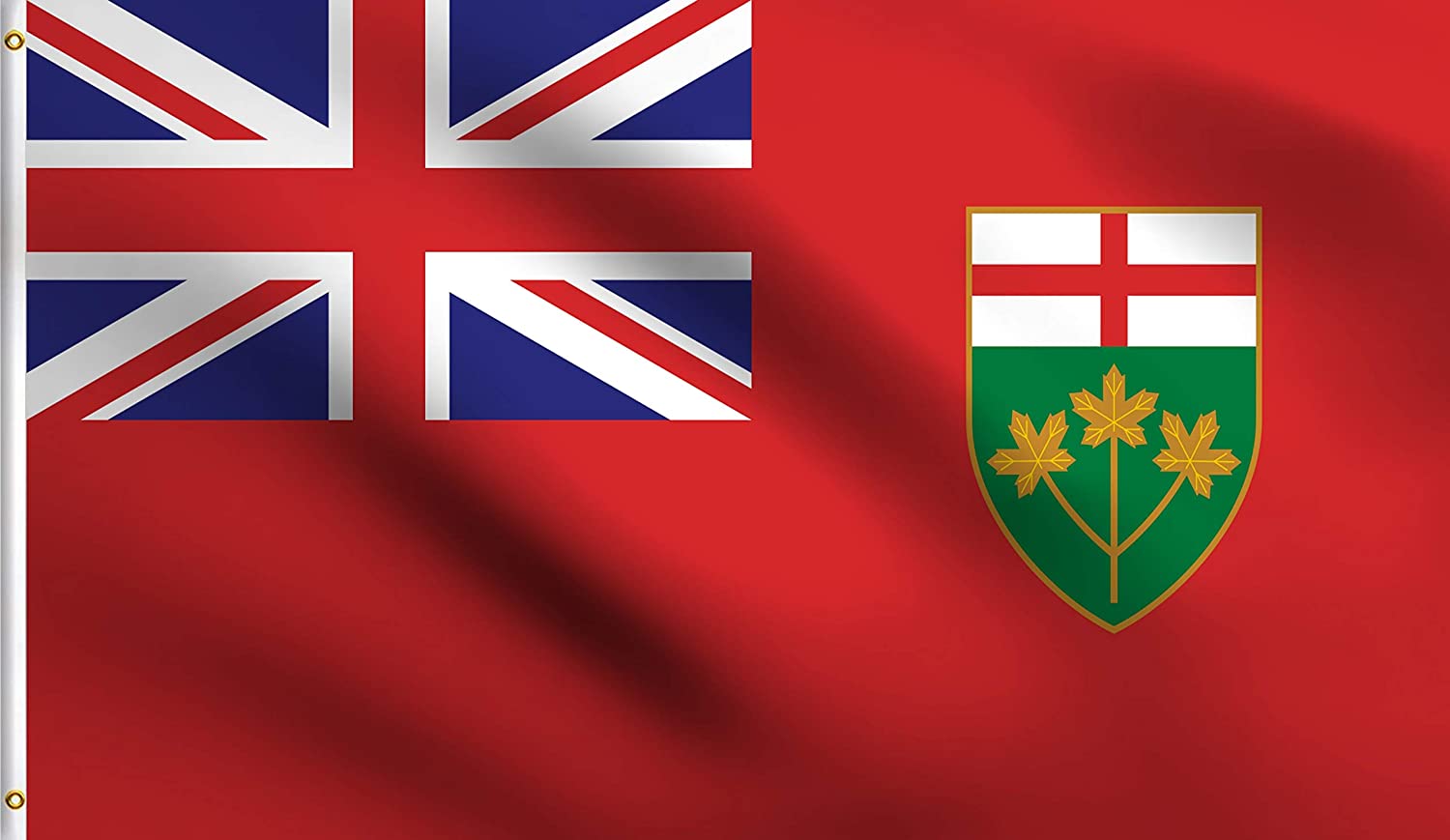 The Ontario lottery had already begun offering online casino and sports betting for over two years, but the government believed an open market would be the best option to maximize revenue. With eleven billion people in the province in the legal gambling age of 19 or older, the potential revenue was massive. In a final attempt to dissuade the province from proceeding, Great Canadian Gaming, which runs the largest casinos in Ontario, commissioned a report which indicated that the province could lose up to $2.8 billion over 5 years if they went through with their plan. The report said that the loss would be the result of the province charging a much lower tax (20%) for online gambling compared to the 55% of revenue charged to land based casinos. Most analysts that this was a ploy to get the government to lower the high tax rate on land-based casinos, but iGaming companies noted that the two forms of gambling have different clientele and that one will not impact the other. The government also said that Great Canadian and other land-based casino companies could apply for an iGaming license and only pay the 20% tax on that revenue. Fallsview Casino, operated by Mohegan Sun, did just that. The report did raise some concern by the media, but it was dismissed as irrelevant by the government.
The Ontario lottery had already begun offering online casino and sports betting for over two years, but the government believed an open market would be the best option to maximize revenue. With eleven billion people in the province in the legal gambling age of 19 or older, the potential revenue was massive. In a final attempt to dissuade the province from proceeding, Great Canadian Gaming, which runs the largest casinos in Ontario, commissioned a report which indicated that the province could lose up to $2.8 billion over 5 years if they went through with their plan. The report said that the loss would be the result of the province charging a much lower tax (20%) for online gambling compared to the 55% of revenue charged to land based casinos. Most analysts that this was a ploy to get the government to lower the high tax rate on land-based casinos, but iGaming companies noted that the two forms of gambling have different clientele and that one will not impact the other. The government also said that Great Canadian and other land-based casino companies could apply for an iGaming license and only pay the 20% tax on that revenue. Fallsview Casino, operated by Mohegan Sun, did just that. The report did raise some concern by the media, but it was dismissed as irrelevant by the government.
On April 4th, the iGaming launch in Ontario started. The first companies to launch included FanDuel, BetMGM, BetCaesars, TheScore Bet, 888, PointsBet, BetRivers, Bet365 and Unibet. DraftKings was granted a license, but delayed the launch for a month. Each company offered both sports betting and casinos with a separate licensing paid for each platform. Over the months, more companies came aboard and as of Christmas Day there were 68 licensees in the province (including suppliers), with 27 companies offering sports betting, 55 companies offering casino gambling and 11 companies offering poker. The launch started slowly, with the province netting only $2 billion in total online betting between April and June, but it grew to over $6 billion in the 3rd quarter of 2022 and reports suggest the figures will far exceed that in the 4th quarter, thanks mostly to NFL and World Cup betting. In the 3rd quarter there were 628,000 active accounts with players betting an average of $142 per month. That number is expected to grow substantially in 2023. The largest and most profitable company in Ontario is Bet365, although the belief is that their success was due to the fact that a large number of Ontario residents already had a Bet365 account based in the UK prior to the launch, so they simply flipped their account to an Ontario account shortly after the launch. TheScore Bet has done well also after deciding to abandon the U.S. market and concentrate solely on Canada. Like the U.S., FanDuel, DraftKings, BetCaesars and BetMGM have also had major impacts while companies like BetRivers, PointsBet and Unibet are not doing as well.
1. New York state launches online sports betting with a 51% tax
When New York announced it would open t he floodgates for online sports betting last year, the questions asked most often were how many operators there would be and what the tax rate would be. Governor Andrew Cuomo indicated he wanted at least a 50% tax, but there was speculation that his wishes would be set aside after he was forced to unceremoniously leave office. The state set up a tax matrix whereby the tax rate would be determined based on the number of operators. The tax rate would be as high as 64% with 4 operators, as low as 35% with 13 or more operators, 51% with 9 operators and 50% with 10 to 12 operators. In the end the state chose to license 9 operators which meant a tax rate of 51%. As soon as it was announced, industry analysts said that sportsbooks could not be profitable paying that tax, but the operators said they were willing to pay the price just to get in the door. The operators licensed included FanDuel, DraftKings, BetCaesars, BetMGM, BetRivers, PointsBet, BallyBet, WynnBet and Resorts.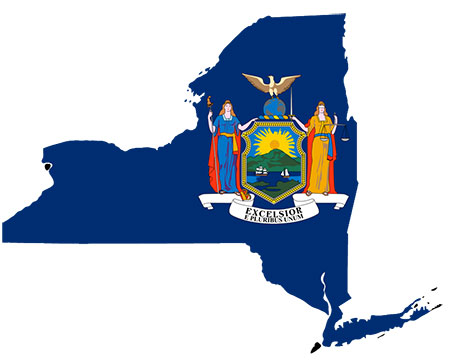 Online sports betting went live on January 8th 2022, and it did not take long for the state to become the largest revenue generator in the United States. As of the week ending December 18th, there have been $15.5 billion in wagers placed in the state with a gross gambling revenue of $1.3 billion. This resulted in tax income to the state of $660.4 million, 98% of which was earmarked for education. FanDuel and DraftKings have dominated the betting in the states with a handle from those two sportsbooks eclipsing the combined total of the other seven sportsbooks. BetCaesars and BetMGM are said to be disappointed with the revenue in New York to date. But in all cases, including FanDuel and DraftKings, each company is losing money because the tax rate makes it impossible to be profitable. The companies have petitioned the state legislators to do something to lower their tax burden and they found a couple of allies in Assemblyman Gary Pretlow and Senator Joe Addabbo, although each admitted there was little they could do on their own. Pretlow proposed a couple of solutions, including adding four new operators, which would bring the total to 13 and lower the tax rate to 35%. He also suggested allowing sportsbooks to deduct promotional costs (the highest cost for sportsbooks by far), from their revenue. But each suggestion was shot down by other legislators. Most New York legislators have said they feel no remorse for operators since they knew what was entailed when they made their bids, plus the state was not prepared to take away badly needed money for education by lowering the taxes.
Online sports betting went live on January 8th 2022, and it did not take long for the state to become the largest revenue generator in the United States. As of the week ending December 18th, there have been $15.5 billion in wagers placed in the state with a gross gambling revenue of $1.3 billion. This resulted in tax income to the state of $660.4 million, 98% of which was earmarked for education. FanDuel and DraftKings have dominated the betting in the states with a handle from those two sportsbooks eclipsing the combined total of the other seven sportsbooks. BetCaesars and BetMGM are said to be disappointed with the revenue in New York to date. But in all cases, including FanDuel and DraftKings, each company is losing money because the tax rate makes it impossible to be profitable. The companies have petitioned the state legislators to do something to lower their tax burden and they found a couple of allies in Assemblyman Gary Pretlow and Senator Joe Addabbo, although each admitted there was little they could do on their own. Pretlow proposed a couple of solutions, including adding four new operators, which would bring the total to 13 and lower the tax rate to 35%. He also suggested allowing sportsbooks to deduct promotional costs (the highest cost for sportsbooks by far), from their revenue. But each suggestion was shot down by other legislators. Most New York legislators have said they feel no remorse for operators since they knew what was entailed when they made their bids, plus the state was not prepared to take away badly needed money for education by lowering the taxes.
Near the end of 2022, Pretlow and Addabbo said that it was likely that nothing would change any time soon to lower the tax rate, but they were looking at two other options that could help sportsbooks generate more money. The first includes allowing bets on awards and other non-sports related bets that they hope will help sportsbooks generate additional revenue (a small concession that likely won’t make a huge difference) and the second was to consider other forms of iGaming, including casinos and poker. The latter would be a major boon to the sportsbooks. Unlike sports betting, there is no risk to the companies since casinos have a set rate of return and more importantly, it attracts a whole new clientele who enjoy wagering on casino games, but not sports. Moreover, since casinos sell themselves there is no need to pour as much money into advertising and promotions to attract online casino bettors. Operators in Pennsylvania are still doing quite well, thanks in the most part to the ability to offer iGaming, despite a 36% tax rate on sports.
Senate bill, 8412, proposed by Senator Addabbo in November would allow each current land-based casino to operate two skins with a $2 million license fee, while current sports betting licenses could add iGaming for a $10 million additional fee. The tax rate for iGaming would be 25%. There has been some opposition to the bill by some New York Tribes who run the land based casinos in the state. Despite being allowed a license under the bill, they know the vast majority of iGaming will be dominated by the current sports betting operations, plus the IGRA may limit their ability to offer iGaming (See sports betting in Florida above). But given the tenuous relationship between the Tribes (especially the Seneca Indians) and state, it is unlikely that the state will give too much credence to those concerns, if the bill becomes law.
I can't look to far into my crystal ball for 2023, but I will be here every week, reporting on the top stories in the gambling industry again!
Read insights from Hartley Henderson all year long here at OSGA and check out Hartley's RUMOR MILL!










